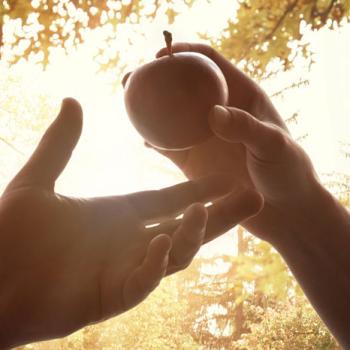
In talking about his book Range: How Generalists Triumph in a Specialist World, David Epstein frequently mentions the “zigzag,” the shift in career trajectory, the shunting from one hobby or art or sport to the next, the benefits of roaming. While Epstein’s book focuses a good deal on youth and early specialization, specifically the problematic strategy of “pick and stick,” he also writes and speaks about adult concerns: career zigzagging and the benefits of changing your mind. Epstein investigates highly successful athletes, musicians, inventors, scientists and others, and as the book blurb states, he “shows how sampling widely, experimenting relentlessly and juggling many interests—developing range—is the key to success.” Epstein argues that the circuitous path often leads to one’s true passions and gifts, to the right fit.
In exploring Epstein’s work, I found myself pondering how roaming, having a wide range of experiences, also benefits the spirit. Specifically, I find myself wondering if wide-ranging experiences don’t foster empathy in ways similar to reading broadly. Many studies demonstrate that reading literature—particularly fiction—increases empathy and emotional intelligence.[1] Empathy is about imaginatively stepping into another’s shoes, feeling with them because we have either experienced something close to what they experience or come to relate to their experience some other way. Often this involves being in relationship with someone who has tread that path. Fiction can also help us relate to people from wildly divergent paths.
Having a circuitous life, or range, is another way to be in relationship with vastly different people, to experience what many different types of people experience, and to develop the muscle of empathy. I have close friends in the healthcare sector. Their empathy for the plight of healthcare workers is deep. And as someone who has worked in landscaping (among several other careers), my appreciation for the skill of physical labor is deep; my empathy deep for laborers.

All Who Wander are not Lost
Epstein’s thesis is fabulous news for me because I am a consummate generalist. I need range like a blue whale needs range. My career zig has surely zagged: from librarian to academic to museum director/archivist/curator to landscape designer/businesswoman to my current life as editor/co-writer and very part-time clergy person. Wedged between these careers were stints as a lay counselor and chaplain, and amid them all, almost every type of writing. Nowadays, my highly valued (and all too constrained) arts hours encompass art-quilting, pottery, and more recently, picking up my long-abandoned guitar. The day before I heard Epstein interviewed and waded into his work, I’d been listening to Ani DiFranco’s ‘32 Flavors’ and remembered what a near to my heart personal anthem it is: “I am a poster girl with no poster. I am 32 flavors and then some.”
Amidst my lifelong path as a generalist, I’ve fostered empathy for groups I never would have known if my path had been focused and straight. Indeed, reflecting on the benefits of range, I also ponder the benefits of roaming between spiritual paths and different faith traditions. Religious institutions, being as geared toward self-preservation as are all institutions, tend to encourage buy-in and complete commitment, or sticking with one’s path until it becomes polished. But this can make people in-group oriented, dogmatic, and exclusive—even elitist. When religious institutions do foster empathy, great effort is required. Yet when we dip our toes into many streams, empathy comes more naturally.
Not long ago I talked with my close friend who is Buddhist about the Benedictine rule of stability. She reminded me that Buddhism assumes impermanence—how all things change, including people, and teaches us practices for dealing with inevitable change. I feel that the Benedictine emphasis can be stifling unless balanced with the Buddhist emphasis on impermanence and change. These opposite poles must be held together in tension. Too much emphasis on stability can sometimes run counter to empathy.
This is not to recommend aimlessness. Among the benefits of being a generalist and a roamer is how it allows us to experience widely enough to find who we are and what we love—to find our true aim. This is Epstein’s point. If we don’t roam, we often end up settling for something that doesn’t stoke our fire. That kind of settling and stick-to-it-ness for its own sake can actually lead to aimlessness, or even pointlessness.
A last word on stick-to-it-ness. One of my favorite Epstein points is that grit is often actually fit. By this he means that when people have grit, this often demonstrates they have found their fit. They have experimented enough to discover something so fitting they cannot not stick to it (like the writer who cannot not write). In other areas, where something is not a fit, these same people may have none of the characteristics of grit.
[1] https://www.discovermagazine.com/mind/how-reading-fiction-increases-empathy-and-encourages-understanding
Wren, winner of a 2022 Independent Publisher Award Bronze Medal


















